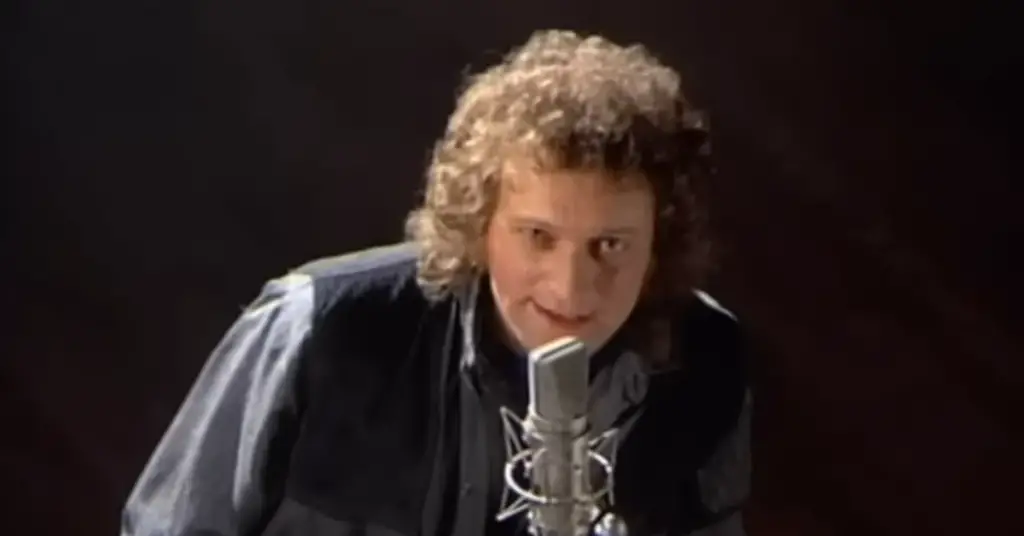When Foreigner released “I Want to Know What Love Is” in 1984, it marked a bold departure from the hard-driving rock anthems that made them famous. Gone were the big riffs of “Hot Blooded” and “Juke Box Hero”—in their place stood a towering, vulnerable, gospel-tinged power ballad that cracked the band’s armor wide open.
And it resonated—deeply and globally. With sweeping emotion, a gospel choir, and the unmistakable ache in Lou Gramm’s voice, “I Want to Know What Love Is” became a generational anthem for anyone who’s ever longed for connection, healing, and something real.
The Sound: A Slow Build to Spiritual Fire
Musically, “I Want to Know What Love Is” is built on tension and release. The song begins with a simple, somber keyboard line—courtesy of songwriter and guitarist Mick Jones—and slowly builds into an emotional crescendo that pulls in soaring strings, a gospel choir, and thunderous drums.
Lou Gramm’s vocals are key—he doesn’t just sing the lyrics, he lives them. His delivery moves from quiet questioning to full-blown pleading, and by the final chorus, it sounds as if he’s singing to the heavens.
“I want to know what love is / I want you to show me…”
There’s no pretense here. No metaphor. Just a raw, human cry for meaning—and that directness is what makes the song timeless.
The Gospel Choir: Heart and Soul
One of the song’s most striking features is its use of the New Jersey Mass Choir, whose voices take the final chorus into another dimension. Their inclusion was groundbreaking at the time—rock bands didn’t usually bring in gospel choirs—but Jones insisted on it.
The result? A climactic blend of rock and soul that lifted the song from a ballad to a spiritual experience. When the choir comes in, the song becomes communal—it’s no longer just one man’s plea; it’s everyone’s.
The Lyrics: Simplicity With Depth
“I Want to Know What Love Is” isn’t lyrically complex, and that’s its power. In a few verses and a repeating chorus, it expresses something deeply universal: the need to be loved, to understand love, and to heal through it.
“In my life, there’s been heartache and pain / I don’t know if I can face it again…”
These aren’t the words of a rock star—they’re the words of a wounded human being, unsure but hopeful, vulnerable but still reaching.
In a decade known for excess and ego, this song stood out because it was honest.
Global Success and Cultural Impact
Released as the lead single from Agent Provocateur, “I Want to Know What Love Is” quickly became Foreigner’s biggest hit, reaching #1 on the Billboard Hot 100, as well as topping the charts in the UK, Australia, Canada, and many other countries.

It remains one of the best-selling singles of the 1980s, and one of the most played love songs in rock history. Its appeal spans generations, showing up in films, TV shows, wedding playlists, and heartbreak mixtapes alike.
Legacy: The Ultimate Power Ballad
“I Want to Know What Love Is” redefined what a rock ballad could be. It proved that emotional vulnerability didn’t weaken a band—it could amplify their voice, broaden their reach, and touch hearts far beyond their usual audience.
It’s since been covered by a wide range of artists—from Mariah Carey to Wynonna Judd—and while each version brings something new, none quite match the intensity and sincerity of the original.
For Foreigner, the song stands as their signature moment, a rare instance when a rock band transcended genre and tapped into something truly universal.
Final Thoughts
“I Want to Know What Love Is” is more than a hit. It’s a prayer, a confession, and a plea wrapped in melody. It’s the sound of armor falling off, of someone daring to hope after pain. And it’s a reminder that love—however elusive—is worth seeking.
So whether you’re heartbroken, hopeful, or just need a song that understands what you’re feeling, this track is still here.
Still echoing.
Still asking the question we all ask at some point.
Do you know what love is?
If so—please, show me.


Facebook Comments